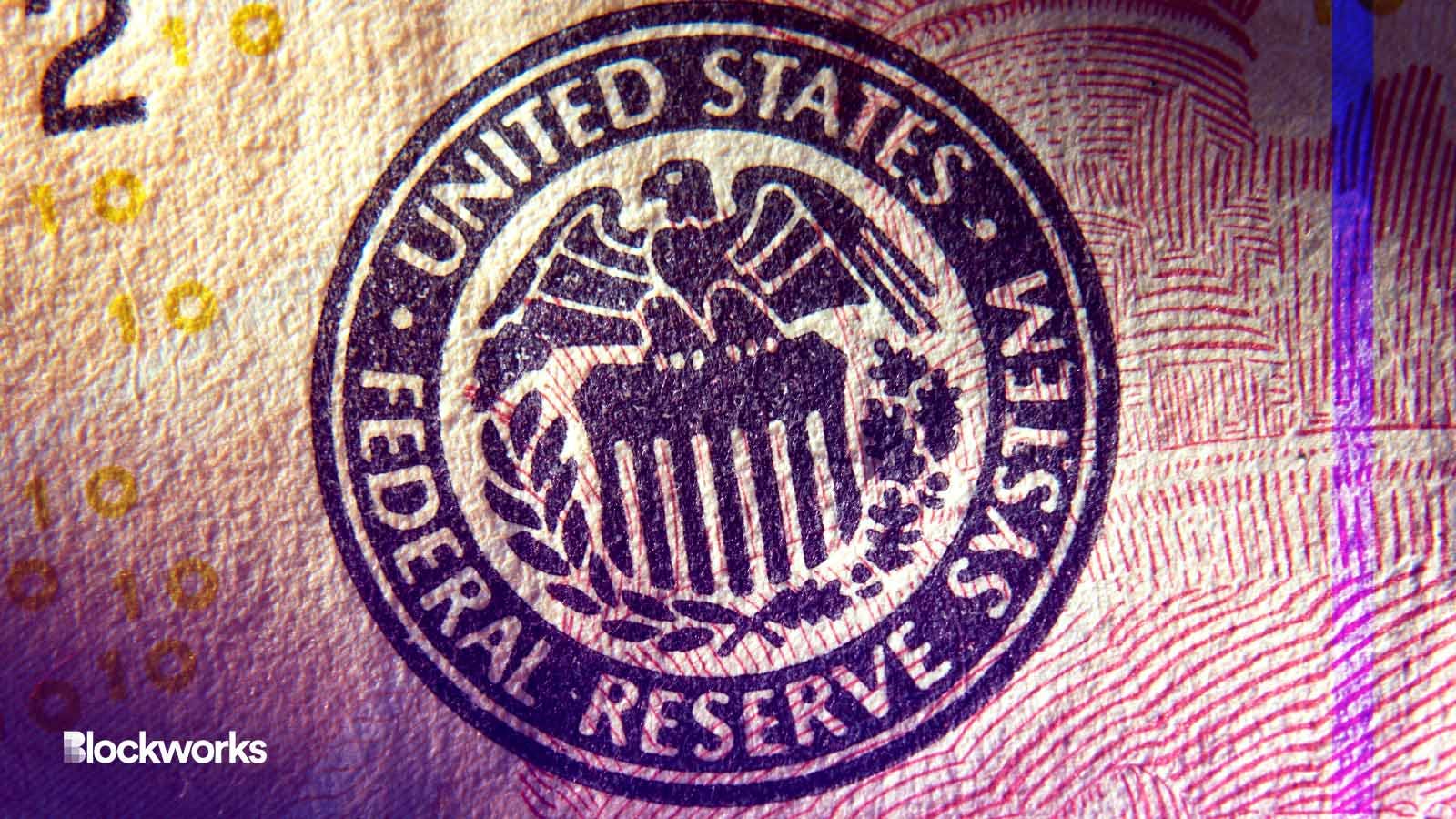Fed targets state banks with new crypto rules, but Congress may overrule
The Fed has new guidelines for state-chartered banks, ordering these institutions to get a written “non objection” before engaging with stablecoins

Lotus_studio/Shutterstock modified by Blockworks
The Federal Reserve has new rules for state banks, but if a contentious bill can make it through Congress, lawmakers may get the last word.
On Tuesday, the Fed introduced new regulations for state-chartered banks, mandating that these institutions obtain written “non-objection” from the Fed before issuing, holding or transacting with stablecoins for payments.
The new policy comes weeks after a contentious stablecoin bill advanced in the House. The House Financial Services Committee pushed through the Clarity for Payment Stablecoins Act last month after seven hours of heated debate and vehement opposition from some committee Democrats.
One of the bill’s central points of contention is the power it grants state regulators: the ability to approve stablecoin issuers. The bill would require state banks to file their issuer applications with the Fed, but it also requires the Fed to respond within 45 days of receiving the application.
Under the Fed’s new rules, they simply have to issue a “non objection,” which would essentially grant the central bank unlimited authority, Cody Carbone, vice president of policy at the Chamber of Digital Commerce, said.
The House bill “doesn’t just give the Fed power to sit and stall or not issue responses,” Carbone added. “The big kicker in the House bill that the Fed doesn’t like is that they aren’t given unilateral supervisory authority over state regulated non-bank issuers.”
The Fed can issue these rules under the Federal Reserve Act, although there is an exception for activities state banks are permitted to do under federal statute, which the House stablecoin bill potentially could become.
The new rules should not come as a complete shock to the industry. The central bank said in January it would probably be limiting state member banks and their subsidiaries to only engage in the activities national banks are permitted. Plus, during the committee markup of the stablecoin bill, Chair Patrick McHenry, R-N.C., alluded to disagreements with other federal agencies.
“Today I had hoped to announce an agreement with the ranking member on stablecoins legislation,” McHenry said during the July 27 hearing. “This will not be the case…It was the White House’s unwillingness to compromise that has once again brought that negotiation to a halt.”
While members of the House Financial Services Committee reached an agreement and passed the bill, the legislation still faces challenges ahead in the broader House, and potentially in the Democrat-controlled Senate if it advances that far.
The rules were announced alongside the central bank’s “novel activities supervision program,” designed to ramp up its governance over how banks are using and engaging with cryptocurrency and other new technologies.
The purpose of the supervision program is to ensure banks are using adequate risk management and conducting any ‘novel activities’ in a “safe and sound manner,” the Fed wrote in a statement.
“The goal of the novel activities supervision program is to foster the benefits of financial innovation while recognizing and appropriately addressing risks to ensure the safety and soundness of the banking system,” the central bank added.
Start your day with top crypto insights from David Canellis and Katherine Ross. Subscribe to the Empire newsletter.





